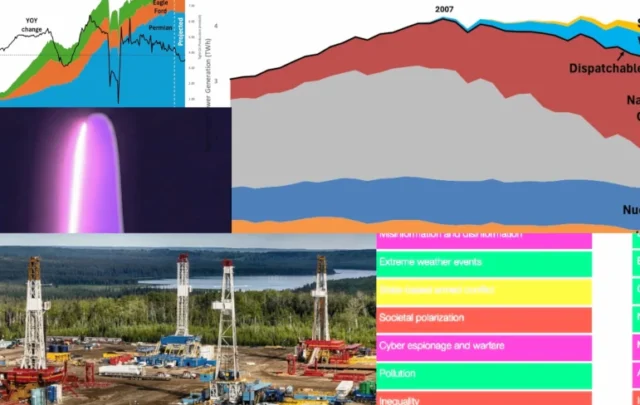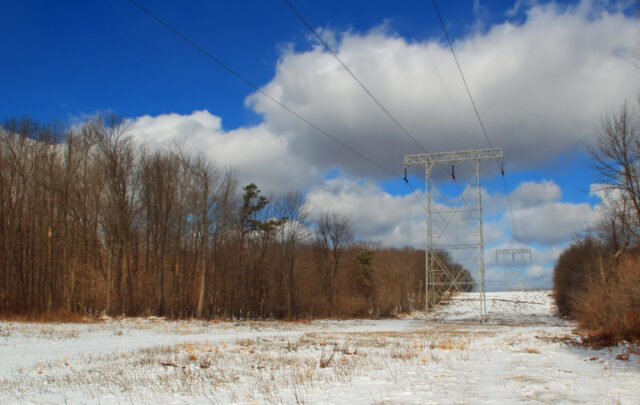Book Review:
Renewable Energy Cannot Sustain a Consumer Society
Ted Trainer
Springer 2007 hardback 197 pages
 Ted Trainer, of the University of New South Wales, has made a valuable contribution to the literature of energy and resource depletion with his new book Renewable Energy Cannot Sustain a Consumer Society.
Ted Trainer, of the University of New South Wales, has made a valuable contribution to the literature of energy and resource depletion with his new book Renewable Energy Cannot Sustain a Consumer Society.
The title says a lot I think. With the focus of most mainstream debate on peak oil and energy being on the supply side – the oil is running low so what are we going to use instead? – Trainer brings a refreshing approach in which he provides a detailed and technically comprehensive analysis of existing renewable energy options- including wind, solar thermal, solar electric, biomass and energy crops, and hydrogen, as well as nuclear and the issue of storing energy. He concludes:
…we could easily have an extremely low per capita rate of energy consumption, and footprint, based on local resources- but only if we undertake vast and radical change in economic, political, geographical and cultural systems.
In the first section he outlines the context I which these discussions have been taking place: a context full of “Greenwash” and wild exaggerations on behalf of some renewable energy suppliers, which has been repeated by the media and left the public with a quite illusory understanding of what renewables can and cannot do.
In writing the book, Trainer claims that
considerable difficulty has been encountered from people hostile to having attention drawn to the weaknesses in their technologies and proposals… Where commercial interest might be threatened by critical enquiry, prickly reactions, including harassment, can be encountered.
In most of the renewable technologies Trainer examines, the conclusion is that although they may make a significant contribution to an energy system backed up by fossil fuels – from 10-20% in the case of wind for example – they simply cannot deliver enough constant power to run our current society entirely.
This issue is compounded when we take into consideration that our society is predicated on a growth ethic, with population and thus the demand growing:
If world population reaches 9+ billion, a global carbon use budget of 1Gt would provide us all with about 150 kg of fossil fuel per year, which is around 2-3% of our present rich-world per capita use of fossil fuels… Alternatively only about 170million people, 2.5% of the world’s present population, could live on the present rich-world per capita fossil fuel use of over 6 tonnes per year.
In the case of solar thermal, for example, Trainer concludes that power stations built in hot regions of the world that use heat from the sun to drive turbines can make a valuable contribution in the summer, but not in the winter. From a global point of view, there would be difficulty in running long transmission lines from, for example, the Sahara to Europe. Even in the best case, large-scale solar thermal is likely to cost 7x the price of coal-fired energy.
In the case of wind, there are similar limitations in the summer, and again, the difficulty of exploiting enough good sites to meet current needs. In Australia, for example, Trainer estimates that because of wind variability, problems of integration with other systems and availability of space on suitable sites would limit the contribution wind could make to 10-20% of current demand.
The hope that wind and solar could be combined – one picking up when the other slackens off – is limited by the costs and logistics of building several large-scale systems each of which would effectively have to be capable of meeting peak demand.
Trainer has a detailed look at biomass but finds this would also run into problems of scale and absolute limits: since many studies have found that ethanol from corn may in fact take more energy to produce than it actually provides, the only possibility to keep the industrial rich world supplied with the volumes of liquid fuels for transport from biomass would be from cellulosic or woody input material – short rotation willow coppice and some other high-yielding shrubs and grasses.
He concludes that if the entire world’s available land were given over to producing ethanol to supply just for the 1.5 billion people living in rich countries, it would still be possible only to meet 15% of our current consumption.
For the nuclear industry to supply all the world’s needs at current rates of energy demand, we would need to build at least 100,000 more reactors and the uranium feedstock would be used up in just 12 years.
Having demonstrated in the first part of the book that renewable sources of energy cannot come anywhere near to replacing fossil fuels in sufficient quantity to keep running the current globalised, capitalist industrial economy, Trainer devotes the last two sections of the book to outlining what amounts to his manifesto which he refers to as “The Simpler Way”:
…the essential factor in our global predicament is over-consumption… [so] we must move to far more materially simple lifestyles…We have to come to see as enjoyable living frugally, recycling, growing food, ‘husbanding’ resources, making rather than buying, composting, repairing, bottling fruit, giving surpluses and old things to others, making things last, and running a relatively self-sufficient household economy. The Buddhist goal is a life ‘simple in means and rich in ends’.
In other words, Trainer argues that the quest to keep the unsustainable growth-based system going by renewable energy sources is a fools’ errand:
It is a mistake to think better technology is important in solving global problems, let alone the key. Most of the things we need in the Simpler Way can be produced by traditional technologies.
Instead, Trainer advocates small-scale, decentralised communities designed around permaculture principles, a no-growth based local economy, the wise management of local natural resources, local community government, simple design approaches such as passive solar, and the replacement of TV and energy-intensive recreations and pastimes with gardening and crafts.
A key part of this which Trainer makes some valuable contributions is the actual number crunching of footprint analyses: how much land is needed to support how many people at what level of consumption?
- while agribusiness, with high fossil inputs, requires 5,000 square metres to feed one North American, bio-intensive methods such as have been demonstrated by Jeavons (2002) show it is possible for people to feed themselves on perhaps 1/100th of this space using far less energy-intensive methods, and requiring perhaps only 4 hours work per week;
- frugal use of electricity could provide a comfortable life sufficient to our needs at less than 2% of typical rich-world household consumption (4 kWh/day), easily achievable with renewables;
- a remarkably low overall footprint per capita of 0.25ha.- 0.5 ha could be achieved- “still under the 2050 globally available figure of 0.8ha”.
Trainer concludes with a discussion of the Transition Process, and acknowledges that he has become increasingly pessimistic that this process will take place in an orderly or timely manner- not because of lack of resources, technologies or knowledge, but because of lack of will:
The problem group, the key to transition is- people in general. If they came to see the Simpler Way as preferable, consumer-capitalist society would be more or less immediately replaced…The battle therefore is to do with the ideology, world-view or vision held by ordinary people.
This is difficult because the Simpler Way involves the developments of social and economic systems that “flatly contradict some of the fundamental elements in Western Culture.” But by turning the spotlight away from governments and political leaders and onto the role each citizen has to play in the way they make decisions everyday about how they live, Trainer offers an empowering response that anyone can begin with right now: it is up to you. Start your garden. Talk to your neighbours. Research low-tech energy options for your community.
Ultimately The Simpler Way is the Only Way. An abrupt petroleum crash would do wonders to focus people’s mind on the predicament we face.
Anyone interested in Energy Descent Planning, Community Powerdown responses and Economic Localisation should read this book.























